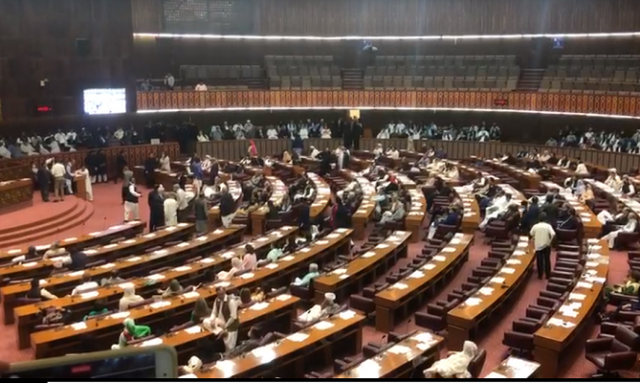Punjab’s First Conviction for Illegal Chinkara Deer Hunting: A Step Forward in Wildlife Protection
In a landmark ruling, a court in Rahim Yar Khan has made headlines by delivering Punjab’s first conviction for the illegal hunting of Chinkara deer. Four men have been sentenced to one year in prison, along with hefty fines totaling Rs4 million. If they fail to pay, they’ll face an additional six months behind bars. This verdict marks a pivotal moment in the fight against wildlife crimes in the region.
The case was initiated in 2023 by the dedicated Wildlife Rangers of Rahim Yar Khan, highlighting a serious incident of poaching that took place in the Cholistan Desert. The proceedings unfolded at the Khanpur Civil Court, where Assistant Chief Wildlife Ranger Mujahid Kaleem Khan ardently pursued justice. Shortly after the verdict, Saleem Sargodhi, Sadiq Mangria, Pannu Mangria, and Rafiq Parhiyar were taken into custody, reinforcing accountability for such illegal activities.
Mujahid Kaleem Khan expressed his satisfaction with the ruling, emphasizing its importance as a deterrent for future poaching in the Cholistan Public Wildlife Reserve. He believes this decision sends a strong message to potential offenders that illegal hunting will no longer be tolerated in this rich ecosystem.
This significant ruling is part of broader reforms, following amendments to the Punjab Wildlife Act in 2021. These changes have escalated punishments for wildlife crimes, including the illegal hunting of various species like blackbuck, Chinkara, and urial. Under the revised law, offenders can now face one to three years of imprisonment and fines ranging from Rs200,000 to Rs1 million per animal hunted.
Syed Ali Usman Bukhari, Deputy Chief Wildlife Ranger for the Bahawalpur Region, reiterated the department’s commitment to wildlife conservation in Cholistan, which happens to be Pakistan’s second-largest desert. Despite its diverse wildlife—a habitat for blackbuck, Chinkara, nilgai, and urial—years of poaching have decimated their populations, prompting urgent measures.
As we celebrate this judgment, it’s essential to remain vigilant and proactive in preserving our natural heritage. Every step taken against wildlife crime strengthens the foundation for a more sustainable future, ensuring that our unique ecosystems thrive.
For anyone interested in staying updated on wildlife conservation efforts or seeking ways to get involved, consider following platforms like Pro21st. Supporting such initiatives can help drive positive change in protecting our natural resources and wildlife for future generations.
At Pro21st, we believe in sharing updates that matter.
Stay connected for more real conversations, fresh insights, and 21st-century perspectives.





